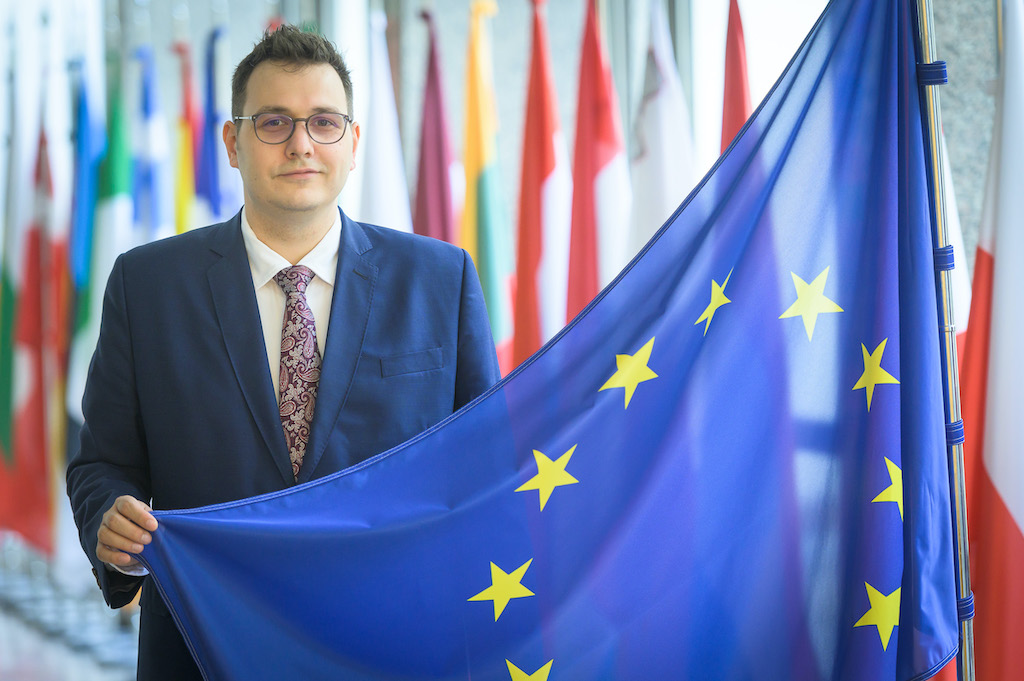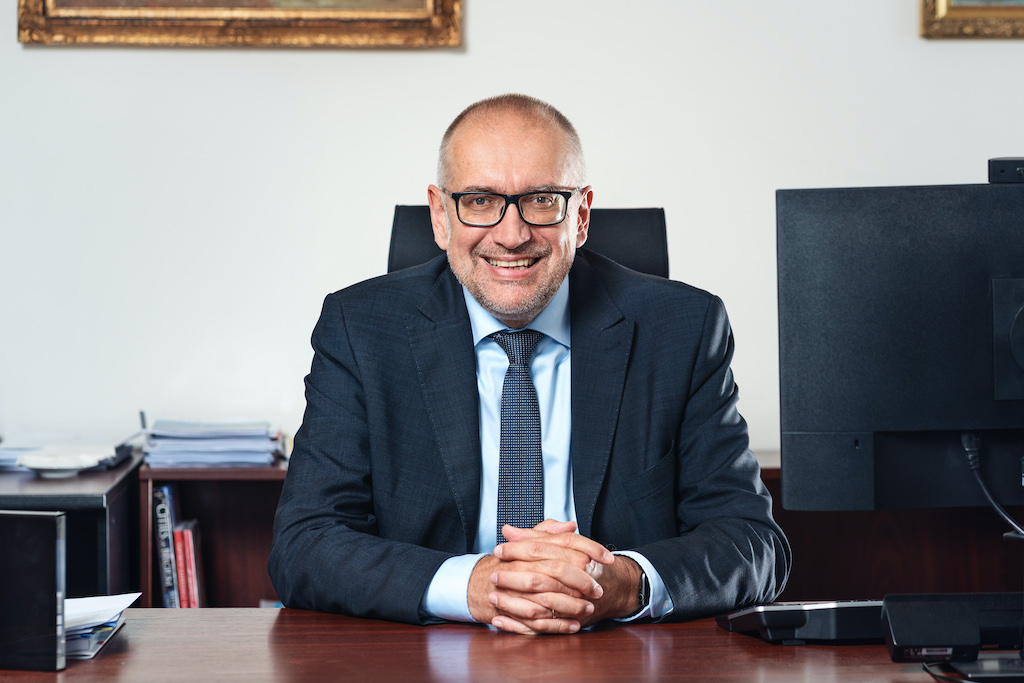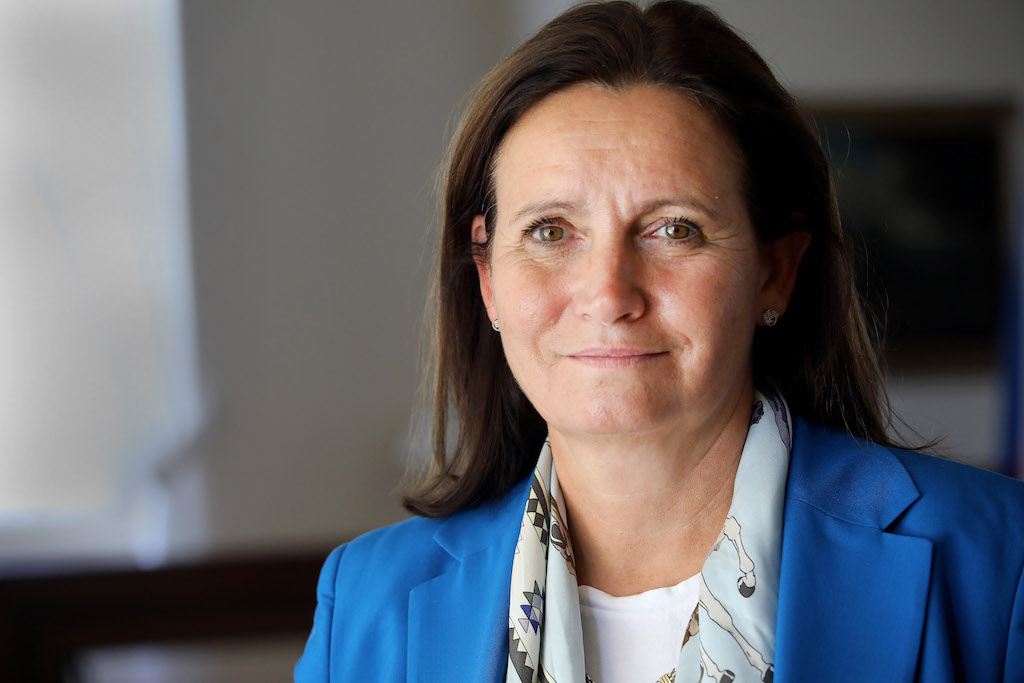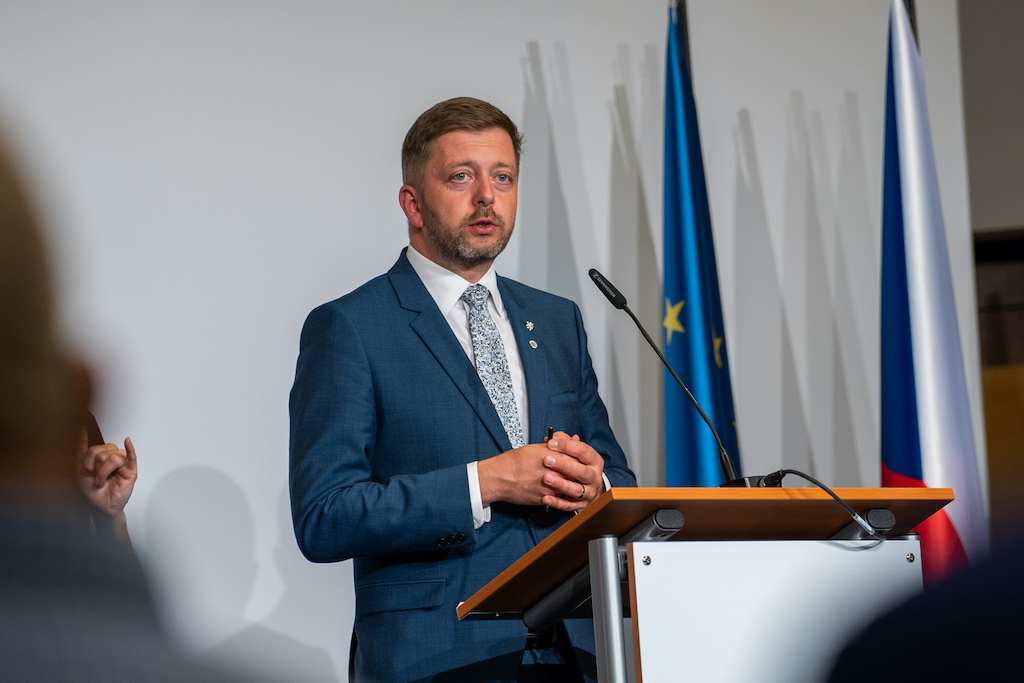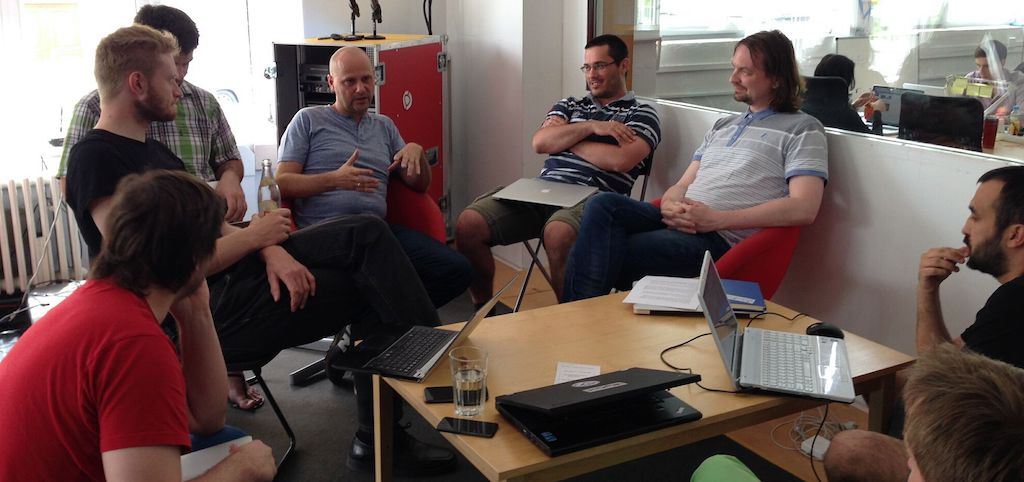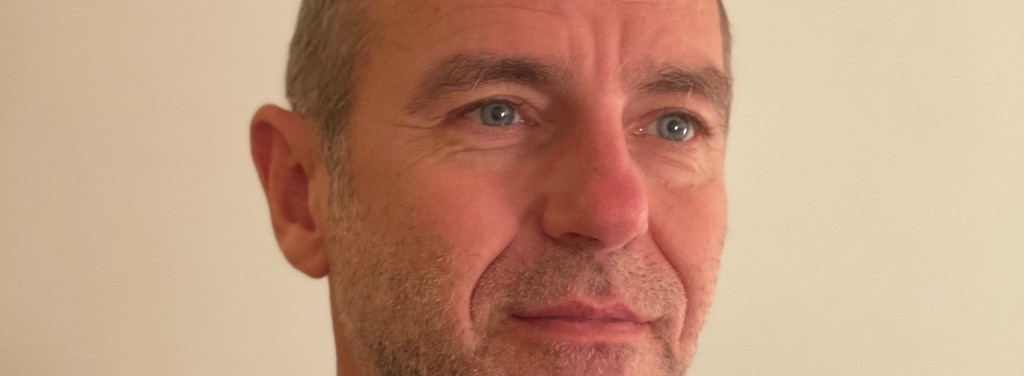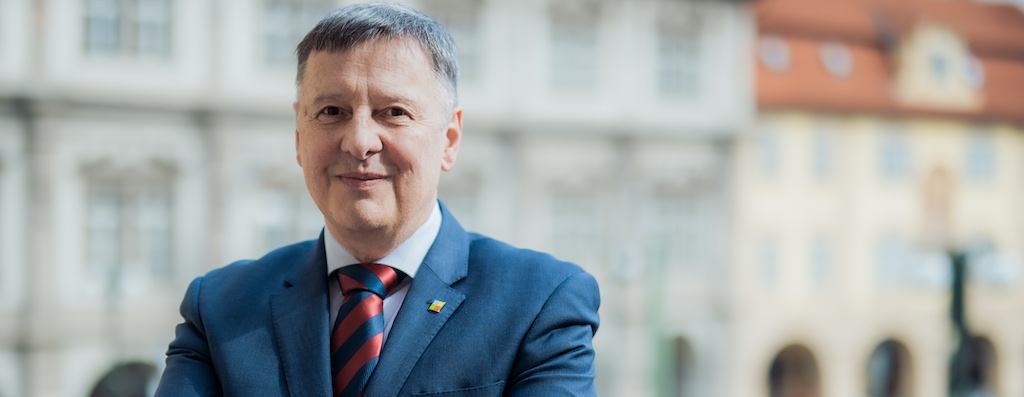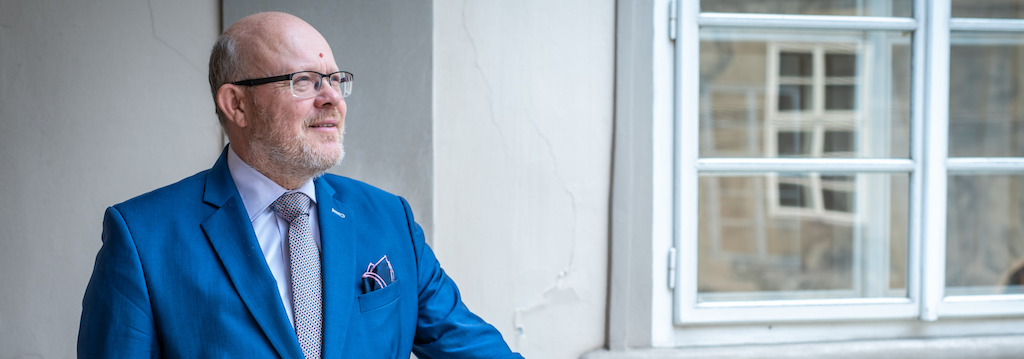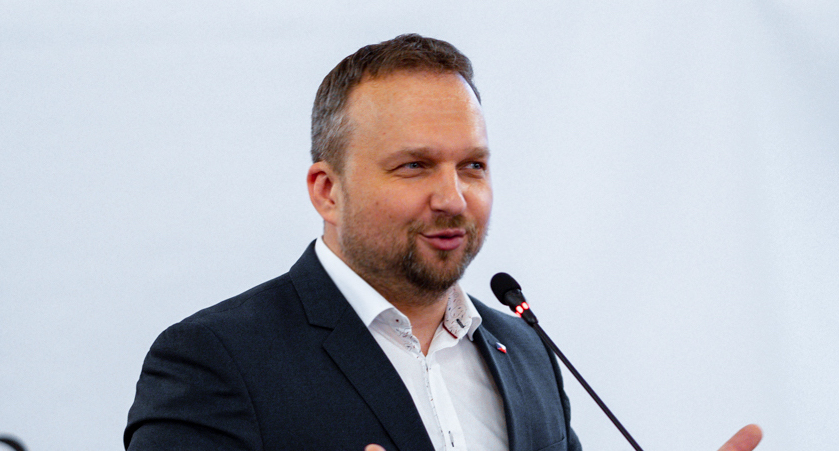“If we take a compass and we draw a semi-circle, the region of Rabat-Salé-Kenitra is almost in the middle of the most dynamic areas of the Moroccan territory”.
President of the Rabat-Salé-Kénitra region council as well as of the United Regions Organization / Global Forum of Regional Associations (ORU / FOGAR), Abdessamad Sekkal presents us and clarifies the Moroccan model of regionalisation but also its assets in economic, environmental and international development terms.
Often cited as an example for its regionalisation model, how is the distribution of powers between the state and local authorities organised in Morocco today?
Morocco has a very old tradition of decentralisation. In the Moroccan political system as it was constructed, local representatives of power had broad prerogatives. Admittedly, we lived a colonial period with notably a strong recentralisation but which was accompanied by the construction of a modern administration. Since the 1970s, there has been very strong action by the State towards decentralisation and especially a movement of regionalisation. And so were created 16 administrative and later political regions with elected councilors but indirectly. Finally, in 2011, His Majesty King Mohammed VI announced an amendment to the Moroccan Constitution to introduce the “project of advanced Moroccan regionalisation.” However, we had to wait until 2015 and the promulgation of the organic law for the new system to be put in place and for the first time to hold regional elections by direct universal suffrage, with a significant renewal of better trained and more political advisers also! In this year 2017 and early 2018, changes should take place, especially as we have gone from 16 to 12 regions. An ambitious but complex reform is being implemented, with the drafting of a new charter with the State. But we are still on the road to “advanced regionalisation” and rethinking the role of the state, and it is a major challenge! We have a “highway” ahead of us to move forward.
In constitutional terms, the change has been very profound because the principles of subsidiarity between local authorities and free administration are now enshrined. This has had a direct impact on the regions, especially in financial terms, where we now have real financial autonomy. These institutional changes have resulted in the exercise of transferred competences (without State funds …) between three levels of communities: communes, departments, with prefectural and provincial councils, and regions. There are areas of intervention in terms of public policies where the three levels can intervene. However, the municipalities work on all that is services of proximity to the citizen: the administrative services and the public services in equipment, urban transport, street lighting, waste, treatment of green spaces, etc. And with this new division of powers, there has been talk of abolishing the prefectural and provincial councils, this has not been the case, and this, to assume two important roles. The first is that in Morocco today, there is still a major effort to be made – and it is a battle of primary necessity – to improve the living conditions of the population. The provincial and prefectural councils have this heavy task with human and financial resources as well as social skills. Their second role is to help rural communities.
And concerning the regions, what are their prerogatives?
In Morocco, the regions have a leading role in development. Their mission is to carry out each, an integrated regional development program (RDP), in terms of economic development but sustainable economic development “socially speaking”, environmental and cultural as well. The question of the competitiveness of the Moroccan economy therefore arises today at the regional level. They have two strategic means of planning: the first is the regional land-use plan, a document that maps the development of the territory over a period of 25 to 30 years. On the basis of the scheme is then built the RDP, which serves as a political project to the Regional Council. Citizens elect the councilors for this program, and for the duration of the mandate, which is six years. A real contract between the elected and the citizen!
In addition, to enable the regions to have the capacity to execute their program, public institutions have been created called Regional Project Implementation Agencies (AREP), which should be the operational arms of the regions. Build a new operating model. In general, regional development is proceeding at a brisk pace, almost like on a highway, and His Majesty the King is very keen on this advanced regionalisation project; as now, citizens who identify their elected representatives very well at regional level and understand how they work.
The Rabat-Salé-Kenitra region has a high rate of economic growth, with a very strong tertiary sector. What are the assets of your territory?
In the RDP of the region voted in July 2017, we have selected two main areas of development: territorial attractiveness and strengthening of economic competitiveness. So, if today we take a compass and we draw a semi-circle, our region is almost in the middle of the most dynamic areas of the territory between Tangier, Fes and Casablanca. We therefore have a geostrategic positioning with easy accessibility with Casablanca, etc … both by the new large port of Kénitra Atlantique for logistics, but also by the tripling of the railway and the TGV at the end of 2018 … Also, in the region, are present almost all areas of possible economic activities. We are the second agricultural region of Morocco and soon the first, thanks to our important water resources. There are still significant investment opportunities for both Moroccans and Europeans. In industry, the sector is booming especially with the installation of the company PSA Peugeot Citroën in about two years (and an open lab with universities), the time of the construction of infrastructure. The environment is also very conducive to develop the aeronautics industry, electrical and what touches the new technologies (in the field of NTIC in particular). Finally, there are also significant opportunities for development on land that depends on the region. We are also looking for developer-developer in this sector.
In addition, our region is also the first university region – which is essential in terms of training and competitiveness – including Mohammed V University, the International University of Rabat and partnerships with other African countries. Our laboratories, etc., own many innovations and patents already! Finally, the region also has potential in the field of tourism, especially with historic sites and a very important natural heritage and of great interest as mountain sites that we would like to develop.
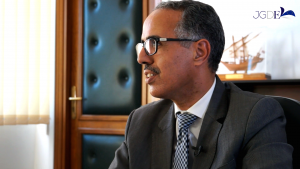 Does the Rabat-Salé-Kenitra region, like the Moroccan state, facilitate the investment of companies on its territory, notably aid?
Does the Rabat-Salé-Kenitra region, like the Moroccan state, facilitate the investment of companies on its territory, notably aid?
Investment and installation aids exist to facilitate the installation of new businesses, etc. As soon as the project reaches 10 million euros, and in what is planned in terms of regulation, it will be by agreement with the State, in particular through exemptions for the first years concerning taxes and social contributions. And there may be other benefits that can be given to investors. In addition, under our RDP, incentives have been provided to move to the region. Also, we can say that the region really wants to position itself in economic terms and thus facilitate the installation of new activities (land available, transport, etc.) and therefore new investors (public and private).
Your region has a close agreement especially with the Auvergne-Rhône-Alpes region (France). What does this partnership represent for you?
It is very important for us to be present and work together on projects between our two regions. We are working a lot on environmental issues including the treatment of waste recovery, the fight against water pollution developed by companies in the French region. We also work together, in terms of creating added value, on crafts. It’s about creating employment divisions. Also, with the Auvergne-Rhône-Alpes region, we have also agreed to provide companies with premises in our two regions for the training of artisans. These exchanges and projects are essential to open new economic development opportunities for our two regions. We all need to create added value.
You are also an important platform for the sub-Saharan markets, how is Morocco positioning itself on this subject?
Morocco today is a strategic partner with different African countries. The country gives access to a market of 1 billion inhabitants. Our country has signed many free trade agreements, particularly with the European Union, Canada, the United States, Arab countries such as Tunisia, Turkey, the United Arab Emirates, and so on. This represents important opportunities for all companies that want to settle in Morocco or other countries of the continent and this, in the framework of a North / South / South and therefore a “win-win” partnership. Africa is a continent of great opportunities but is entitled today to seise a new approach to benefit people from the added value produced and not to remain in a logic of exploitation. Besides, Morocco does not want to put itself in this second logic. We want to be a partner for Africa’s development because we are part of it as well.
The region is very committed particularly in the protection of the environment. Can you tell us about the projects launched on access to water and energy, etc.?
Our RDP is built on three pillars, three ambitions: social, territorial and economic. Also, there is already a strong will to make sustainable development, a principle that is in the underbase of all actions. On the environmental side, today, our goal is to work on water policy and in particular to reduce pollution. In this context, we have put in place substantial budgets for this. We are developing pilot projects for wastewater treatment in the next four years and also to implement waste recovery projects to break the logic of solid waste landfilling, without sorting nor valorisation. There are also projects in renewable energy development with photovoltaics or other technologies. We will even start with the headquarters building of the area, and other public buildings to make management efforts. We hope to achieve a renewable energy production of 50% in a relatively short time We really want to be a player in this change by helping also the smaller municipalities.. We put the means for that. Finally, in terms of clean mobility, we are investing in the extension of the Rabat-Salé tramway to reduce air pollution.
You also chair the United Regions Organization / Global Forum of Regional Associations (ORU / FOGAR). What are your ambitions?
As president of the ORU / FOGAR but also a member of the Association of the Regions of Morocco, we are working, on an important goal for me, to make the ORU / FOGAR a platform at the service of the regions of South to develop projects that fit into the logic of territorial resilience and fight against climate change. But what is happening today is that when we go looking for funding for these kinds of projects, it must be “bankable”, profitable projects … and we do not always have the expertise This is why a unique platform of projects would be necessary.
A word about the Francophonie, since you are chairing the “Economic Development” working group of the International Association of Francophone Regions. How is the French language an advantage for creating value and employment in your area?
That Morocco is a French-speaking country, this facilitates important relations with Europe, France, Belgium but also towards Africa. Language is a very important vector in terms of communication and rapprochement between peoples, such as during school exchanges or getting to know each other better among decision-makers as well. The Association des régions francophones has a very important role in this area in two ways: the first is that sustainable partnerships that are made between communities, allow the aid to go directly to the people and not to the communities’ states. The second is that it is better to work in international forum, such as ORU / FOGAR, because it helps to optimise the means and create a new North-South / South-North approach to develop more.







